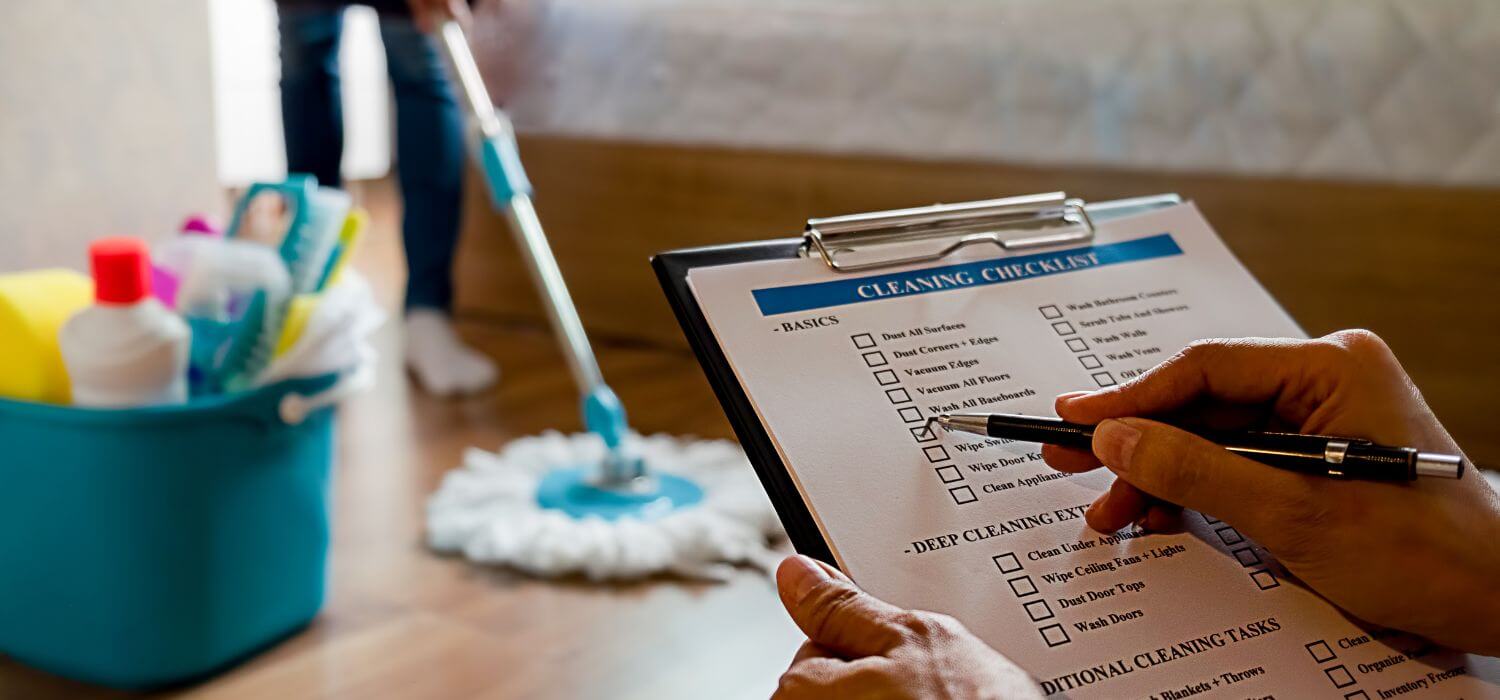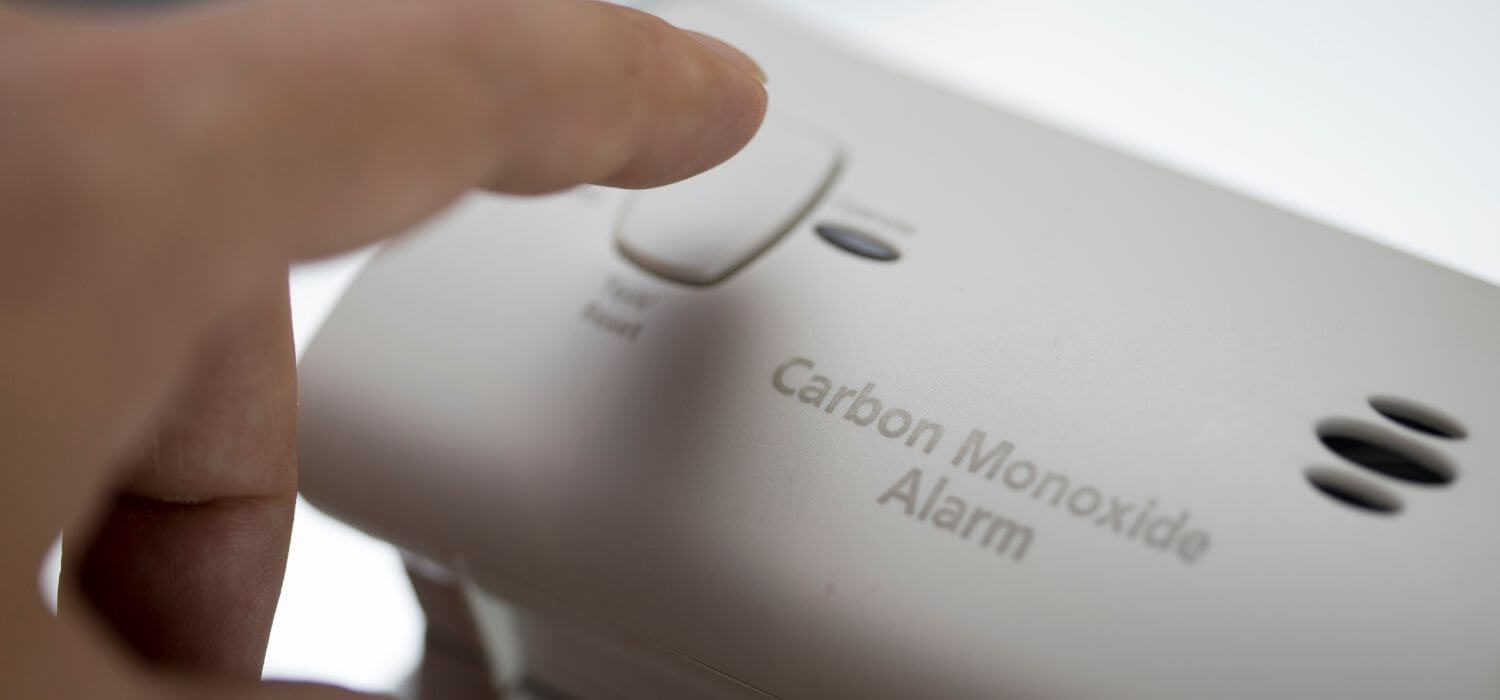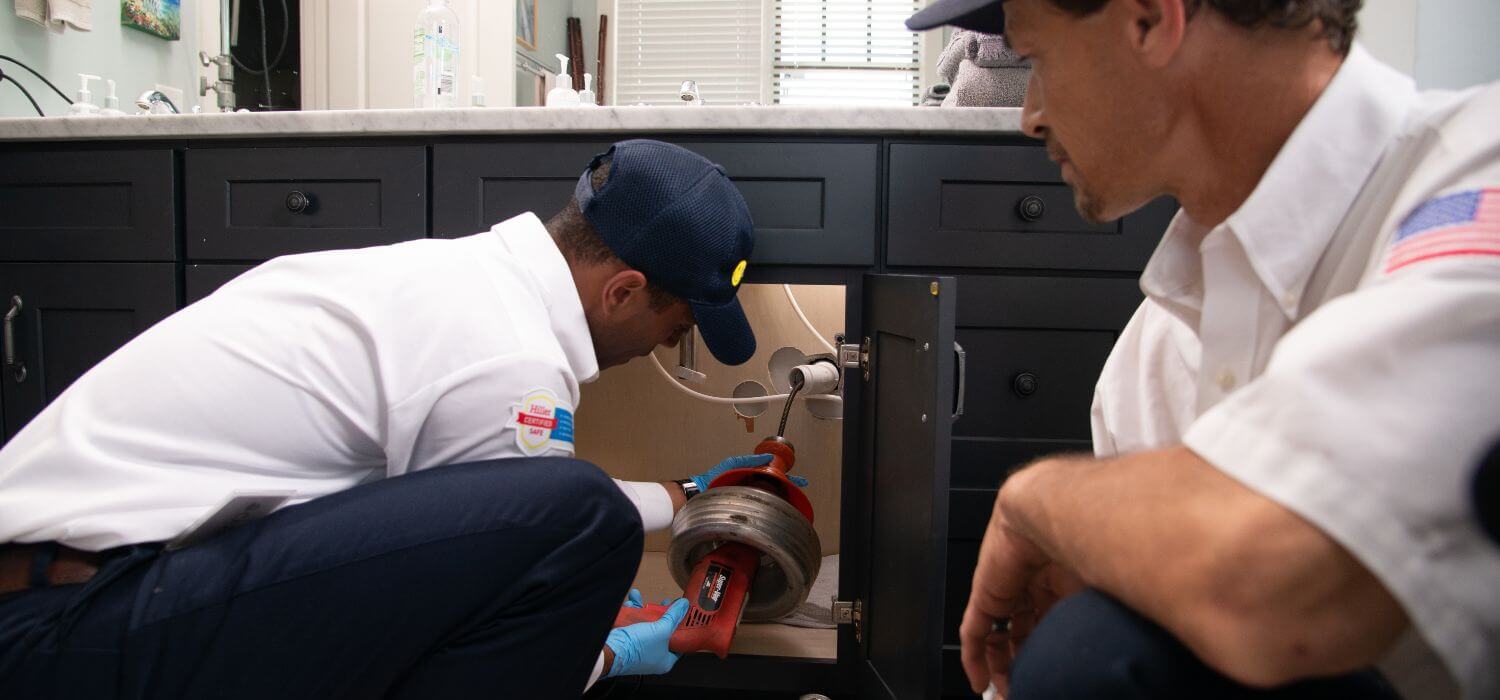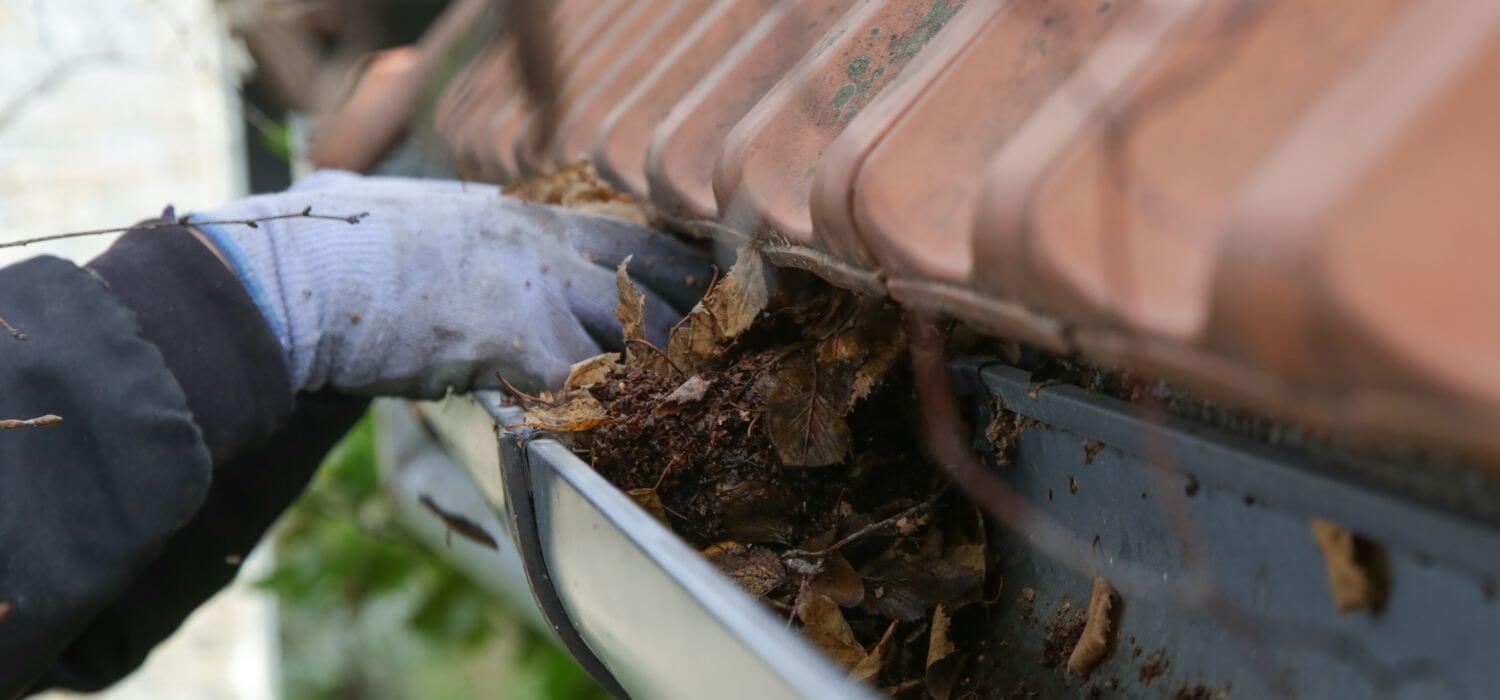The Ultimate Guide on How to Care for a Home
Enjoy reading the latest DIY articles and saving money?
Receive our latest helpful hints, tricks and savings, directly to your inbox.
Posted June 6, 2025
As a homeowner, you’ve probably admired some of your city’s most charming historic houses, many of which have stood firm for over 50 to 60 years. While their beauty stands the test of time, their longevity is no accident. It comes down to proper care and maintenance.
With the proper upkeep, your home can last just as long, if not longer. To help you get there, we’ve rounded up our top home maintenance tips. Read on to learn how to keep your home in great shape for years to come!
Create and Follow a Cleaning Schedule
A 2023 BLS report revealed that the average American spent nearly two hours daily on household chores. These include food prep and clean-up, interior and exterior maintenance, home repairs, and laundry. That’s already almost 14 hours a week! But without a checklist, you could spend more time on homeowner duties and tasks.

A checklist is helpful since it can minimize the time you need to think about what to do next. It can also make you feel less overwhelmed since you spread tasks into daily, weekly, or monthly schedules. Plus, when you break down chores into chunks, you’re more likely to finish them.
Here are some ideas to help you craft an easy-to-follow cleaning checklist.
Daily
Every time you use your stove or oven, wipe away food splatters as soon as they are cool enough. This prevents debris and grease from hardening and becoming more challenging to remove.
Next, check the kitchen tap for leaks and the drain for slow movement, two of the most common sink plumbing problems. Remove large debris from the sink strainer to avoid clogging your drain pipes.
Clean the kitchen counters and sweep or mop food and drink spills from the floor. This can help prevent them from attracting pests, such as roaches and rodents, that can destroy property and cause diseases.
Once or Twice Weekly
Clean and disinfect bathrooms, especially the toilets, sinks, taps, and toothbrush holders. Remove soap residue and hair from the shower or tub drain strain, and throw the debris in the trash. Don’t flush them down the toilet, as they can contribute to drain clogs.
You should also sweep or vacuum high-traffic spots like the entryway and living room. Tidying up these areas can minimize clutter that can cause slips, trips, or falls.
Monthly
Wash your windows and their covers and vacuum upholstered furniture and HVAC vents.
It’s also an excellent time to inspect your HVAC system’s air filters. You don’t have to replace them if they don’t have significant build-up. However, if you have pets, plenty of indoor plants, and do a lot of cooking with a gas stove or oven, you may have to.
Changing clogged filters helps make your HVAC system perform more efficiently. And when it works as it should, it can do its other job of removing moisture from the air. This can make your home less susceptible to mold growth, contributing to its longevity.
You don’t want molds inside your home because they can destroy the things they grow on. They can also lead to adverse health effects like eye, skin, and respiratory infections.
Address Plumbing Leaks Without Delay
Plumbing leaks are some of your home’s top enemies since they can cause water and mold damage. Many can also go unnoticed for a long time because most pipes are inside walls and underground. They also add to indoor humidity, make your HVAC system work harder, and drive water and energy bills.
So, as part of your home’s routine maintenance, inspect for water leaks. One way to do this is to check your monthly water bills to see if they’re roughly the same. If your usage has been increasing without an apparent cause, take that as a sign you have water leaks.

You can also perform a water meter test when no one is at home. Note your meter’s reading now and then check again after two hours. If it increased despite no one being home, it indicates you have plumbing leaks. To prevent more water from going to waste and causing damage, hire a plumber to hunt down and fix those leaks ASAP.
Test Fire and Smoke Alarms Monthly
Working alarms can reduce the risk of dying in a home fire by half. They can also help minimize property damage since they notify you immediately of a potential fire. This lets you respond quickly and possibly extinguish the flames before they spread.
So, test your fire and smoke alarms at least once a month to ensure they’re functional. Check all of them, even if you installed or replaced their batteries all at the same time.
Don’t Forget Your Carbon Monoxide Alarms
Your carbon monoxide (CO) alarms notify you about any unusual build-up of CO inside your home. It can help protect you from CO poisoning, something that lands 100,000 people in U.S. emergency rooms yearly. This invisible, tasteless, and odorless gas is so dangerous it can kill.
CO alarms also help you care for your home better by warning you of potential equipment failure that can cause property damage. For example, a cracked furnace heat exchanger can leak CO and unburned natural gas. If the latter builds up in an enclosed space, it can result in an explosion and fire.

That’s all the more reason to ensure your CO alarms are working by testing them once a month.
Know How to Handle Gas Leaks
If you suspect you have a natural gas leak (this will make your home smell like rotten eggs), shut all gas valves immediately. Have everyone leave the house pronto, and as you make your way outside, open as many windows as possible. This can help dissipate the gas and reduce the risk of it causing an explosion or fire indoors.
Once outside, call your gas supplier to report a potential gas leak. Then, have an emergency HVAC repair company inspect and fix your furnace.
Schedule Pre-Season HVAC Maintenance
Ideally, you should have your HVAC system inspected and tuned up once in the spring and once in the fall. These tune-ups help prep it for the peak cooling (summer) and heating (winter) seasons.
Spring maintenance focuses on your AC, while fall is for your heating system. During the service, the HVAC technician will:
- Inspect all mechanical and electrical components
- Clean the entire system (including filters, blower, and outdoor unit)
- Lubricate moving parts
- Inspect the ductwork
- Tighten all connections
- Calibrate the thermostat
When cleaning your AC, the tech will pay particular attention to its evaporator coils and test it for refrigerant leaks. If you have a gas furnace, the HVAC technician will inspect its heat exchanger. They’ll also give your burners a deep clean.
Be on Your Toes for Electrical Woes
Cooking is the leading cause of home fires in the U.S., but electrical problems can also cause fires. Electrical fires often occur due to overloaded or short circuits and outdated or failing wiring. They can also arise from defective products, such as panels that fail to trip when they should. Electrical wires damaged by pests like mice and rats can also trigger such disasters.

To care for and protect your home and family from such fires, be on your toes for the following:
- Frequently dimming or flickering lights
- Outlets and switches with burn marks or are warm to the touch
- Circuit breaker trips whenever you turn on a high-wattage appliance
- You get shocked whenever you plug something into an outlet
- Burning rubber or fishy smells
- Loud buzzing or hissing sounds from the electrical panel
Please call a licensed electrician if you notice one or more of the above symptoms. They can indicate electrical faults that, if not fixed promptly, can cause a fire.
Mind Your Drainage System
Thanks to your drainage system, sewage and wastewater can leave your house.
The problem is that misuse, old age, and even the water flowing through it can cause it to form clogs. These can lead to slow-moving drains and toilets that take forever to flush. Given enough time, they can become complete blockages that send wastewater back to your home.
The Cause
Pouring fats, oil, and grease (FOG) down the drains is one of the top culprits behind clogged drain pipes. So does flushing things down the toilet that aren’t part of the three Ps (toilet paper, pee, and poop). Wipes and cotton pads don’t disintegrate, even though their labels claim they’re flushable.

Aging drainage systems can also form clogs due to corrosion and limescale formation. Corrosion can occur in metal pipes, including galvanized steel. Limescale is due to dissolved minerals in water that settle on the interior walls of pipes.
Preventing and Fixing Clogs
Properly dispose of FOG by placing these liquids in containers. Seal them tight and put them in the trash for safe disposal and collection.
You should also ask everyone to flush only the three Ps and put everything else in the trash can. Tell them that no matter how small or thin an object is, it can cause clogs in the drain pipes if it doesn’t dissolve.
Scheduling yearly drain cleaning services can also help prevent clogs from worsening. A professional plumber can clear your entire drainage system of blockages with hydro-jetting.
Hydro-jetting involves using high-pressure water. It’s more eco-friendly and much safer than using harsh chemicals to dissolve clogs. Still, it’s so effective that it can break down hardened FOG, limescale, and tree roots.
Keep Gutters Clear
Your gutters channel rainwater flowing down the roof away from your home. They help protect your abode from water intrusion that can cause structural damage.
Over time, your gutters can become full of dirt, dust, leaves, twigs, and even small pieces of trash. These can block the drains that channel water from the gutter to the downspouts.

When that happens, your gutters can overflow, even collapse from the extra weight. The water that overflows can also seep into your home’s foundation or basement. Either way, these can cause water damage and promote mold growth.
Water that remains in your gutters can also attract pests, including mosquitoes. These insects are notorious for their itchy bites and the diseases they can bring. So, inspect and clean your gutters once or twice every season and ensure they drain properly. Look for cracks, holes, or disconnected joints. If you see any signs of disrepair, have a professional fix them ASAP.
Invest in Yearly Roof Maintenance
Your roof can develop leaks due to old age and all the sun, rain, wind, snow, and hail exposure it gets. Mildew, mold, and moss can also grow on it and contribute to early wear and tear, leading to leaks. Once your roof leaks, it can let water enter your home and cause moisture-related damage.
To prevent those problems, have your roof cleaned and inspected yearly by pros. It’s also wise to have a local roofer check it after a storm (as soon as the weather permits). This way, the expert can look for damages, such as cracks or missing shingles or tiles, and fix them before they worsen.
That’s How to Care for a Home
If you know how to care for a home, you can make yours last for many decades and maintain its safety and livability. Keeping it in top condition can also help retain or boost its value, which is a plus if you decide to sell it in the future.
So, if you need professional help maintaining your home, the Hiller team is ready to assist! Contact us today, and we’ll happily provide an estimate for all the services you need.
 Daily Promotion
Daily Promotion
FREE 10-Year Extended Warranty with Generac
Bonus protection for your backup power.
Get Promotion